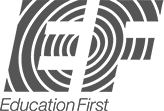Dear colleagues –
A note of explanation on our evolution from EF College Study to EF Study Abroad, which requires just a little bit of history.
As some of you know, in the United States, EF leads the field in K12 international programming, and it is often the first place where families come to know us. For a long time, the backbone of our K12 programming was also the foundation for our college faculty-led programs. Short, 10–12-day programs embedded as part of a course abroad.
Open Doors has noted the rapid increase in popularity of these formats over the last 10 years for their flexibility, accessibility, and high student impact in a short period of time. A short-hand label for these formats was “study tours”. And in our straight-forward, call-it-like-it-is culture at EF, we named this part of the organization, EF College Study Tours. We focused on helping institutions that had no study abroad infrastructure create their first global mobility efforts through this program format. And we have become expert at it and one of the top providers of the format – which has allowed our vision and ambition to evolve.
Over the last 5 years, we have deconstructed and reconstructed our program design. We have added academic affairs, assessment vehicles, new program formats, new education partners, new staff, new operations infrastructure, new sourcing capabilities and new technology. We have launched course abroad and full semester faculty-led formats; we have launched first year global semester formats; we have launched new summer credit-bearing programs; and we are building full semester programs right now. All with an ambition to create the most relevant student experiences in the field.
We definitely could have locked on to bigger words – “global” or “global education” or “future-ready”, etc., but we also wanted to make sure people could find us easily in the sea of acronyms that tend to be the staple of provider organizations. And in EF’s under-stated way, we have simply stepped into EF Study Abroad. One of our bedrock principles is that the door to accessibility is through ease. We need to be easy to understand, easy to work with, easy for students to navigate. We need to make the complicated, simple. Because 10% of American students studying abroad is not enough; and the next cohort is going to need more help than the first.
Warmly,
Christian
Christian Meyer
Executive Vice President
EF Education First

